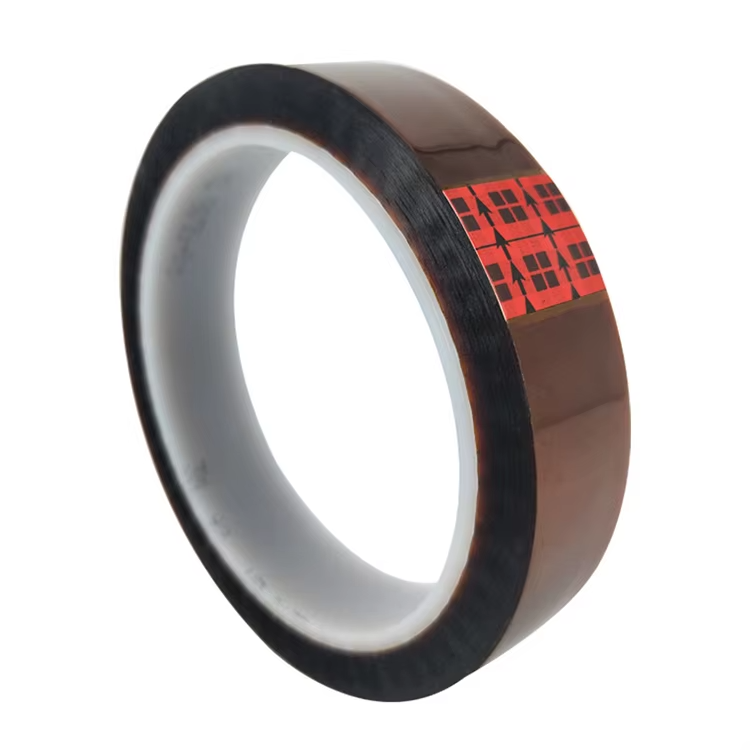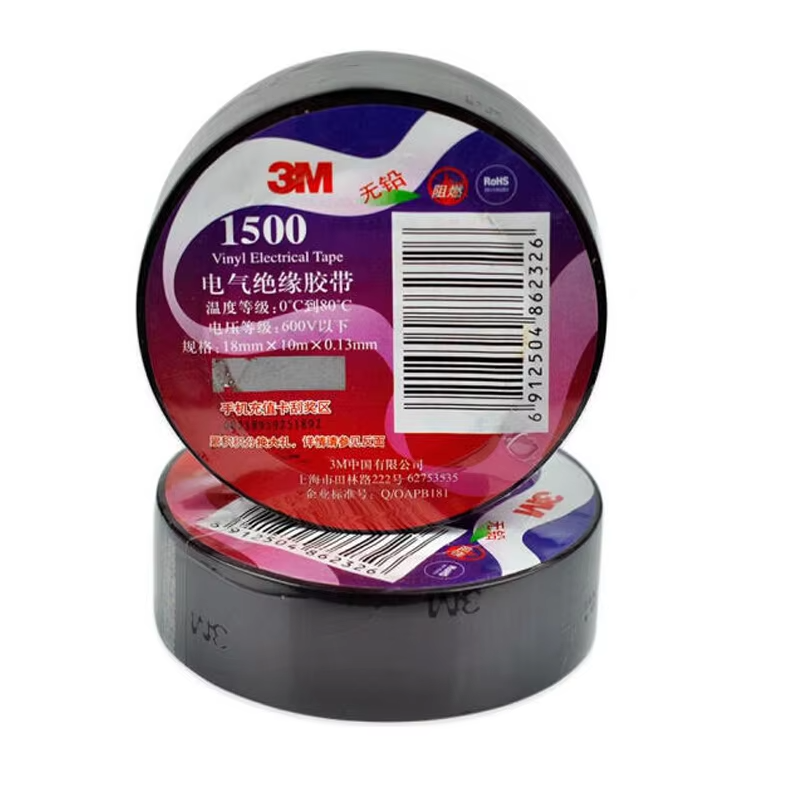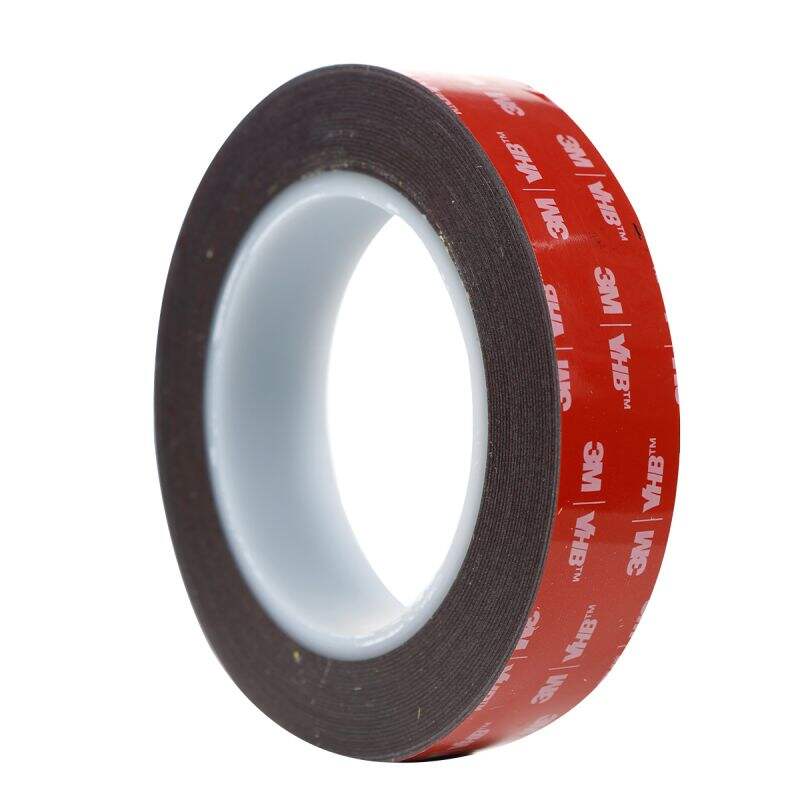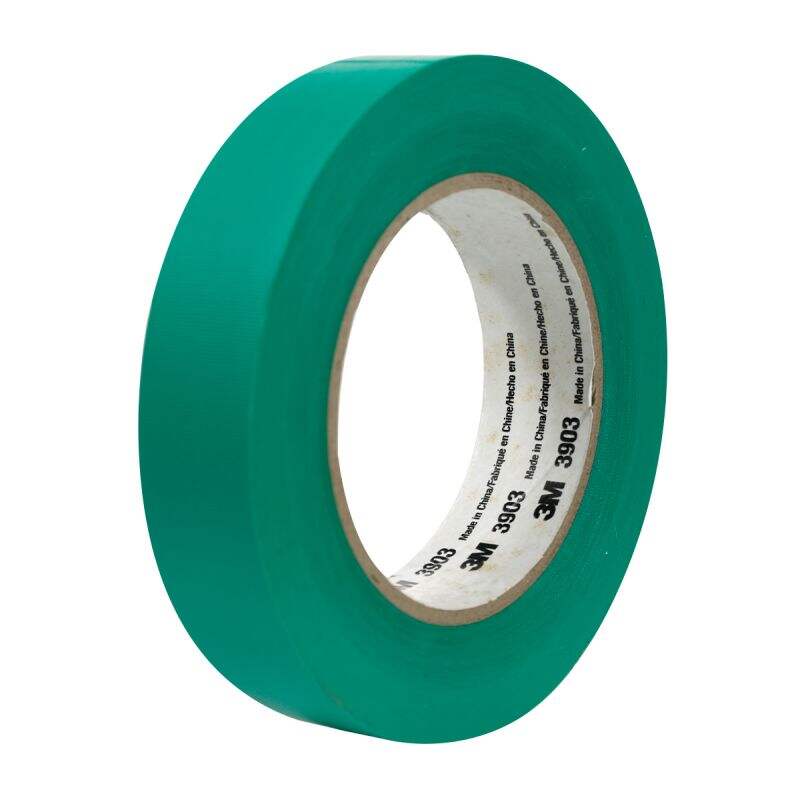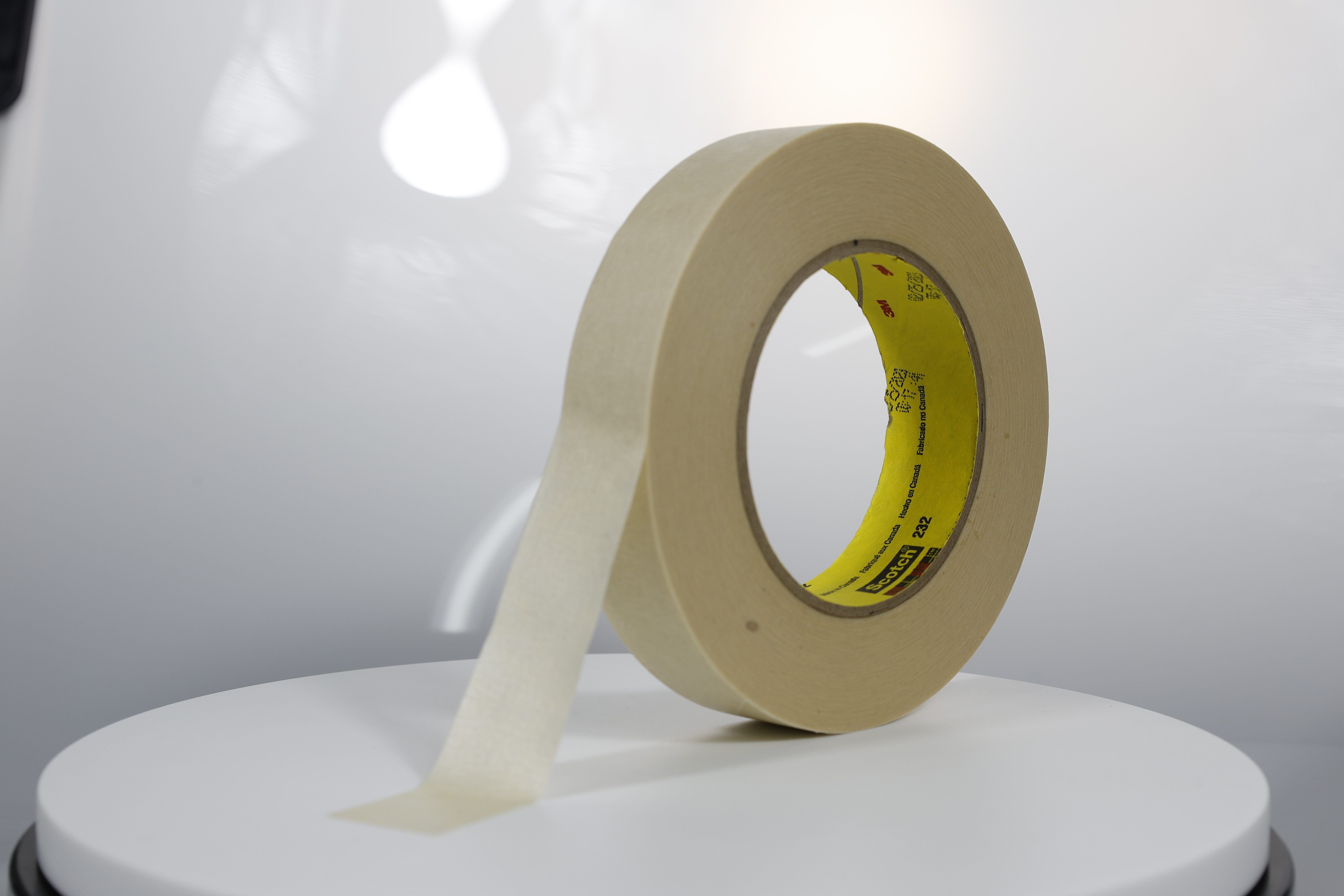Outdoor lighting installation? UV - resistant electrical tape is non - negotiable for safety.
Why UV-Resistant Electrical Tape is Critical for Outdoor Wiring
The Role of UV Resistance in Preventing Degradation
UV rays are notorious for breaking down various materials, leading to a reduction in effectiveness, especially for electrical insulation solutions like tape. Continuous exposure to UV rays can cause tape materials to become brittle and crack over time, resulting in potential electrical hazards. UV-resistant electrical tapes are specifically formulated with chemical additives that enhance their durability against sunlight. This additive composition helps maintain the integrity of the tape, ensuring it holds strong even in prolonged exposure to outdoor environments. Statistics indicate that UV-resistant tapes generally last twice as long as non-resistant alternatives when subjected to similar outdoor conditions. This longevity not only ensures a safer electrical connection but also reduces the frequency of tape replacement, thereby providing long-term cost-effectiveness.
Risks of Using Non-UV-Resistant Tapes Outdoors
The use of non-UV-resistant tapes in outdoor settings poses significant risks, including potential overheating or electrical shorts due to a tape's failure to maintain insulation. Incidents where non-resistant tapes have led to costly repairs and safety hazards are not uncommon. For instance, one case study highlighted a severe electrical short that caused equipment damage and operational downtime due to deteriorated tape. Industry experts emphasize the importance of using UV-resistant tapes to prevent such occurrences. Financial implications from tape failures also extend beyond repair costs, encompassing safety hazards and damage to sensitive equipment. Investing in UV-resistant tapes mitigates these risks by providing reliable insulation, ensuring outdoor wiring remains safe and effectively insulated against environmental stresses.
Key Features of High-Performance UV-Resistant Electrical Tapes
Durability Against Weather and Temperature Extremes
High-performance UV-resistant electrical tapes are designed to withstand a wide range of weather conditions and temperature extremes, making them ideal for outdoor applications. These tapes typically endure temperatures from -10°F to 194°F, ensuring robust performance in both chilly and scorching environments. The materials used, such as PVC and rubber, contribute significantly to their durability. PVC offers excellent resistance to moisture and chemicals, while rubber adds flexibility and resilience. Research shows that these tapes maintain their integrity and adherence even in high humidity and fluctuating temperatures, providing consistent protection for electrical installations.
Flame Resistance and Insulating Properties
UV-resistant electrical tapes not only excel in durability but also in flame resistance and insulating properties, which are crucial for outdoor settings. These tapes are constructed with flame-retardant materials that prevent ignition, enhancing safety in industrial and residential environments. Additionally, they provide strong electrical insulation with voltage ratings typically ranging between 600V to 1000V, safeguarding wiring against short circuits and electrical failures. These properties make them indispensable, especially in industrial applications where safety and performance are paramount. Expert recommendations often highlight the use of flame-resistant tapes in environments susceptible to fire hazards.
Adhesive Strength for Long-Term Reliability
The adhesive strength of UV-resistant electrical tapes is vital for their long-term reliability in outdoor applications. Strong adhesion ensures that the tape remains in place despite environmental challenges such as temperature fluctuations and moisture exposure. When comparing adhesive strength across different types of tapes, UV-resistant options are superior due to their ability to maintain grip in extreme conditions. Testimonials from industry experts underline the importance of reliable adhesive, noting that high adhesion is essential to prevent tape failure that can lead to costly repairs and safety hazards. Ensuring strong adhesive properties is critical in achieving the dependability required for outdoor electrical applications.
Top UV-Resistant Electrical Tapes for Outdoor Lighting Installation
3M™ Polyimide Film Electrical Tape 92: Flame-Retardant Precision
The 3M™ Polyimide Film Electrical Tape 92 is renowned for its resistance to high temperatures and its flame-retardant properties. This tape is particularly adept at handling delicate electronic components, thanks to its polyimide film backing, which provides robust insulation. It's especially designed for challenging environments, where maintaining the integrity of sensitive devices is crucial. With certifications like UL Listing and RoHS compliance, this tape not only delivers exceptional performance but also meets stringent safety standards, making it an excellent choice for outdoor applications. You can explore more about 3M™ Polyimide Film Electrical Tape 92.
3M™ Glass Cloth Electrical Tape 27: Abrasion-Resistant Protection
3M™ Glass Cloth Electrical Tape 27 provides excellent protection against abrasion and enhances durability in outdoor settings. Its glass cloth construction makes it ideal for use in rough environments such as construction sites or landscaping projects. The tape's versatility in various electrical insulation tasks, such as coil covering and motor leads, underscores its application range. Additionally, its ability to resist tearing and withstand high mechanical stress makes it a trusted choice for demanding projects. For those interested in a versatile, abrasion-resistant solution, 3M™ Glass Cloth Electrical Tape 27 is a highly recommended option.
Best Practices for Installing Outdoor Wiring with Electrical Tape
Waterproofing Connections for Safety
Ensuring the waterproofing of electrical connections is critical in maintaining the safety and integrity of outdoor wiring systems. To effectively waterproof these connections, one must employ layering techniques with insulating tape or similar materials. This process involves wrapping the tape around the connection multiple times, thereby creating overlapping layers that prevent water penetration. Moisture management plays a vital role in avoiding electrical faults and short circuits, which can present significant hazards in outdoor environments. Experts recommend sealing connections with silicone gel or resin after taping for enhanced protection. Following these best practices ensures long-term outdoor wiring safety and reliability against environmental elements.
Proper Depth and Protection of Buried Wires
The depth at which electrical wires are buried is regulated by various codes to protect them from potential damage. Regulations often specify a burial depth ranging from 18 to 24 inches, depending on the local guidelines and environmental conditions. To further safeguard these wires, protective measures such as using conduit types made from PVC tape or rigid metals are recommended. These materials act as a durable barrier against soil and physical disturbances. Referring to electrical codes, such as the National Electrical Code (NEC), provides insights into the safety standards for outdoor installations. Adhering to these guidelines is crucial in minimizing the risks associated with buried wires in outdoor settings.
Routine Maintenance to Ensure Tape Integrity
Routine maintenance of outdoor electrical tapes is paramount in maintaining their integrity and functionality. Regular inspections should be conducted to identify wear and tear on tapes that provide electrical insulation. A maintenance schedule might include quarterly visual checks to assess the tape’s condition and pinpoint any areas needing replacement. Replacing worn-out insulation tape promptly is essential to avoiding exposure to moisture or UV damage. Industry standards, such as IEEE guidelines, support timely maintenance and offer expert tips for prolonging the lifespan of electrical tapes used outdoors. This proactive approach ensures a robust and secure outdoor wiring infrastructure.
Recommended Products
 Hot News
Hot News
-
Pakistan Business Delegation Visits Our Factory, Seals Partnership With Immediate Deposit
2025-04-29
-
TAPE Team Conquers Shenzhen’s Phoenix Mountain: Unity, Ambition, And New Heights In 2025
2025-02-21
-
The Role of Polyimide Electrical Tape in Electronics Insulation
2025-01-21
-
High Strength Double-sided Tape for Secure Bonding
2025-01-15
-
Durable Foam Tape for High-Performance Applications
2025-01-10
-
High Temperature Resistant Masking Protective Tape for Extreme Conditions
2025-01-01
